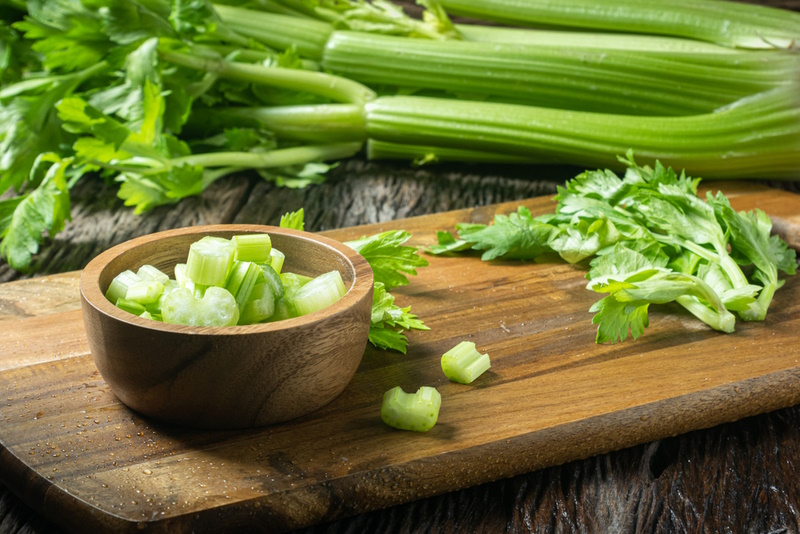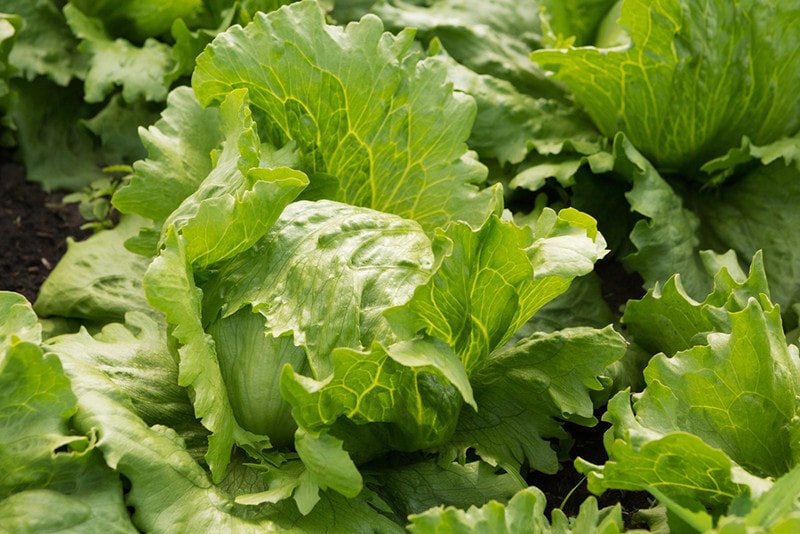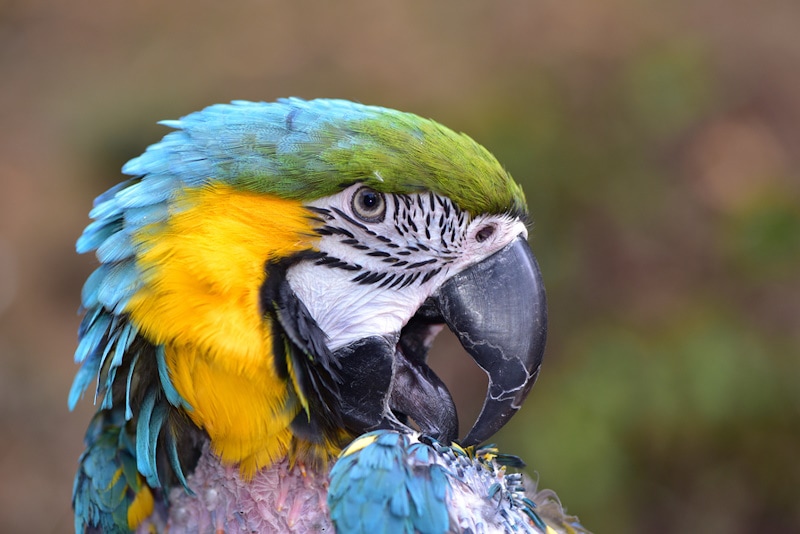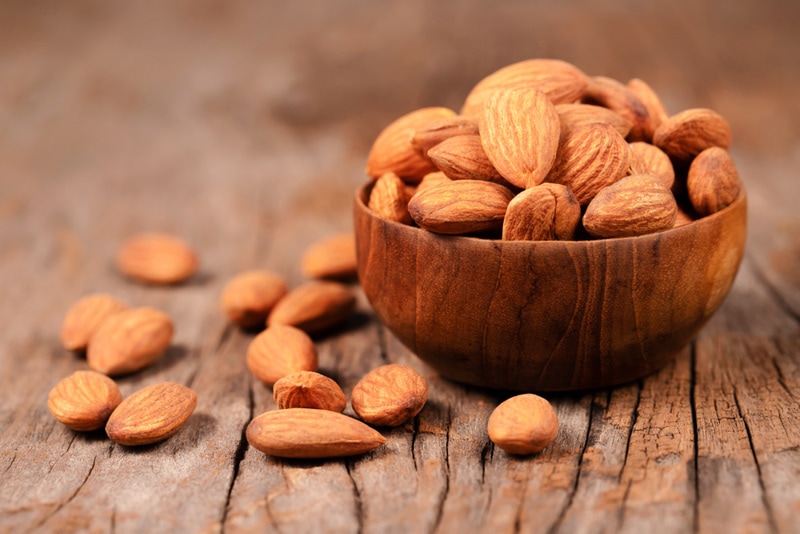Can Parrots Eat Celery? Vet-Approved Facts & FAQ
By Jordyn Alger
Updated on

Feeding a proper diet to your pet parrot is one of the most important factors in making sure that they are receiving quality care. You may have heard that some pet owners feed celery to their parrots, but is it a safe and healthy option?
The answer is yes; your parrot can eat celery. However, celery should only be fed in moderation to parrots since an excess of celery can lead to complications. To learn more, keep reading below, where we will discuss everything you need to know about celery before you feed it to your parrot.
Celery Nutrition Facts
Celery is a vegetable that belongs to the Apiaceae family, which includes parsnip, carrots, fennel, parsley, and cumin. It is native to the Mediterranean and Middle East, but it is now eaten by people (and pets) all over the world.
The stalks of celery are high in fiber, antioxidants, and other nutrients, and they are low in calories. This makes them a great treat for many pets since they are not a fattening food. Additionally, celery is around 95% water, so it provides a boost of hydration.
- Potassium
- Folate
- Calcium
- Vitamin A
- Vitamin C
- Vitamin K
- 95% water
- 14 calories
- 3 grams of carbohydrates
- 6 grams of fiber
- 1 gram of sugar
- Less than 1 gram of protein
- Less than 1 gram of fat

What to Know Before Feeding Your Parrot Celery
Celery is not toxic for birds, so it is safe to feed it to your pet as a snack. Since it is high in water and low in fat and calories, it can serve as a healthy treat on special occasions. Birds typically enjoy the crunchiness of celery stalks as well.
However, celery should only be fed to your parrot sparingly. Compared to other vegetables, celery provides very few nutrients since it is mainly made up of water. As crucial as water is for your pet, an excess of celery in their diet may cause them to suffer from nutritional deficiencies. Another issue with foods that contain this much water is that it can lead to polyuria – resulting in loss of fluids.
In addition, you should always remove the stringy pieces from the stalks and chop celery into small chunks before feeding them to your pet parrot. The celery strings can become stuck in your parrot’s digestive system, potentially leading to crop infection.
A parrot’s crop is the enlarged part of the esophagus that processes food before transferring it to the stomach. When food becomes stuck inside the crop, it can spoil. Foul, entrapped food in the crop can cause a crop infection, which can lead to severe complications with their appetite and digestion.
Parrots suffering from a crop infection may have a swollen crop and regurgitate food. If you notice your parrot has regurgitated, take them to the vet right away. Even if it is not due to a crop infection, it is likely due to other serious medical issues that require your vet’s care.
Healthy Alternatives to Celery
While celery is a nice crunchy snack in moderation, there are healthier alternatives that will provide your parrot with some more substantial benefits. Instead of feeding your pet celery, consider these vegetables:
- Asparagus
- Beets
- Broccoli
- Brussels sprouts
- Cabbage
- Carrot/carrot tops
- Bok choy
- Corn
- Kale
- Parsnip
- Peppers
- Pumpkin
- Romaine lettuce
- Spinach
- Zucchini

Frequently Asked Questions (FAQ)
If you have more questions about your parrot’s diet, it is recommended that you consult your vet or avian specialist. In the meantime, take a look at some frequently asked questions below.
How Much Fresh Produce Is Appropriate for Your Parrot?
Once you’ve decided which vegetables you’ll feed your pet parrot, you’ll want to determine the appropriate portions for your pet.
It is important to note that vegetables should not make up the bulk of your parrot’s diet. Instead, the base of your pet’s diet should be a nutritionally complete pellet formula that provides them with the right balance of nutrients. Fresh produce should make up around 15–30% of your parrot’s diet.
Feeding fresh produce that is rich in nutrients is the best way to supplement your pet’s pellet diet. While frozen or canned vegetables can be fed to your bird, they are less healthy alternatives with limited nutritional value. Therefore, it is recommended that you feed your parrot fresh, ripe produce.
Are There Other Veggies, Like Celery, That Do Not Provide Nutritional Value?
Celery is not the only veggie that should be fed in moderation only. Vegetables such as iceberg lettuce or head lettuce are not recommended, as they mostly contain water. They provide little nutritional value for your parrot.

Will Parrots Get Diarrhea from Eating Fresh Produce?
Diarrhea isn’t typically an issue when feeding fresh produce to your parrot unless fed in excess. Instead, parrots may experience an increase in urination due to the water content in fresh produce. This is typical and not usually something to be concerned about.
However, if your parrot’s urine excretion seems excessive or extreme, it may be a sign of a medical condition. Consult your vet if you are ever concerned about your parrot’s health.
How Can Pet Owners Verify That Their Parrots’ Diets Are Healthy?
Feeding your parrot a high-quality pellet diet with a variety of nutritious vegetables is a great way to ensure that they are receiving a healthy diet. However, the only way to know for sure that you are providing a sufficient diet for your pet is to consult your vet.
Your vet can analyze your parrot’s current diet and determine any areas that need extra work. They will also be able to construct a dietary plan for you to follow. Your vet is your greatest resource when it comes to your pet’s care, so don’t delay in reaching out for their advice.
Conclusion
If you’re enjoying the crunch of a celery stick, you can absolutely share some with your parrot. Celery is a fine snack for parrots when fed in moderation. However, its limited nutritional value does not make it a good candidate for regular feeding. Instead, consider providing your parrot nutritionally rich veggies such as peppers or squashes. We hope that this article has helped you to understand your parrot’s dietary needs better. However, when in doubt, talk to your vet.
Featured Image Credit: inewsfoto, Shutterstock













